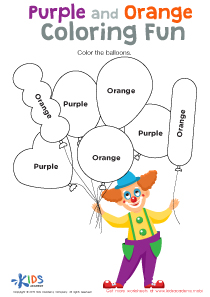Alphabet Recognition Easy English for Beginners Worksheets for Ages 6-8
6 filtered results
-
From - To
Discover the perfect resource for young learners with our "Alphabet Recognition Easy English for Beginners Worksheets for Ages 6-8". These engaging worksheets are thoughtfully designed to help children master the basics of the English alphabet in a fun and interactive way. Ideal for beginners or ESL students, these printables focus on letter identification, matching, and writing exercises. With bright illustrations and clear instructions, the activities promote effective learning while keeping kids motivated and entertained. Boost your child's foundational language skills with these easy-to-use worksheets and watch them gain confidence in their alphabet recognition abilities.
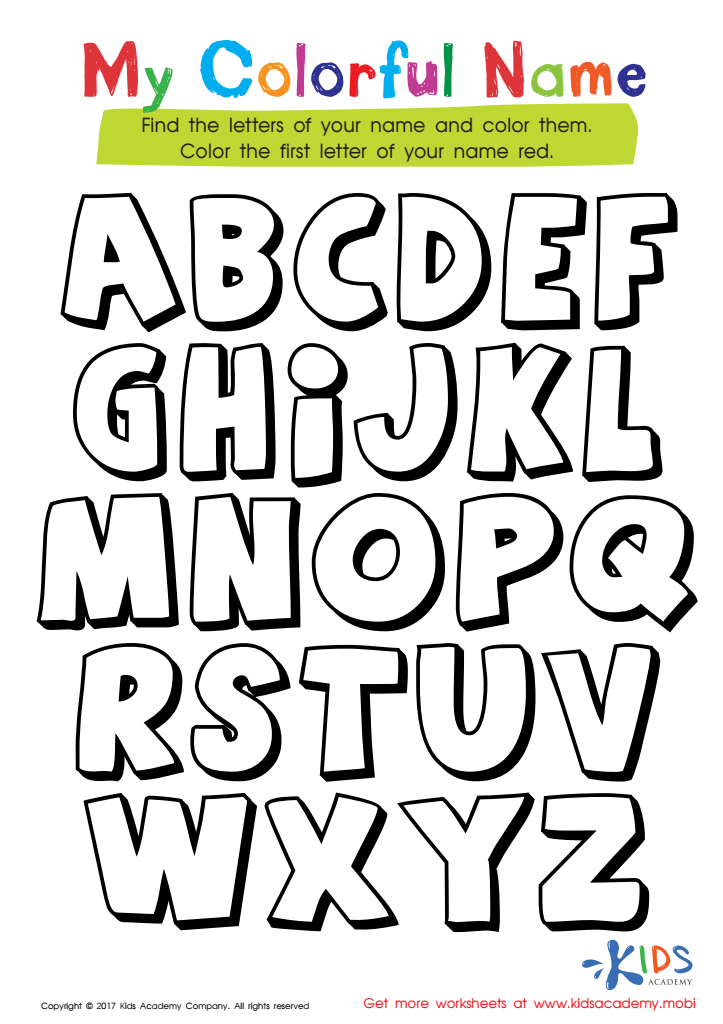

My Colorful Name Worksheet
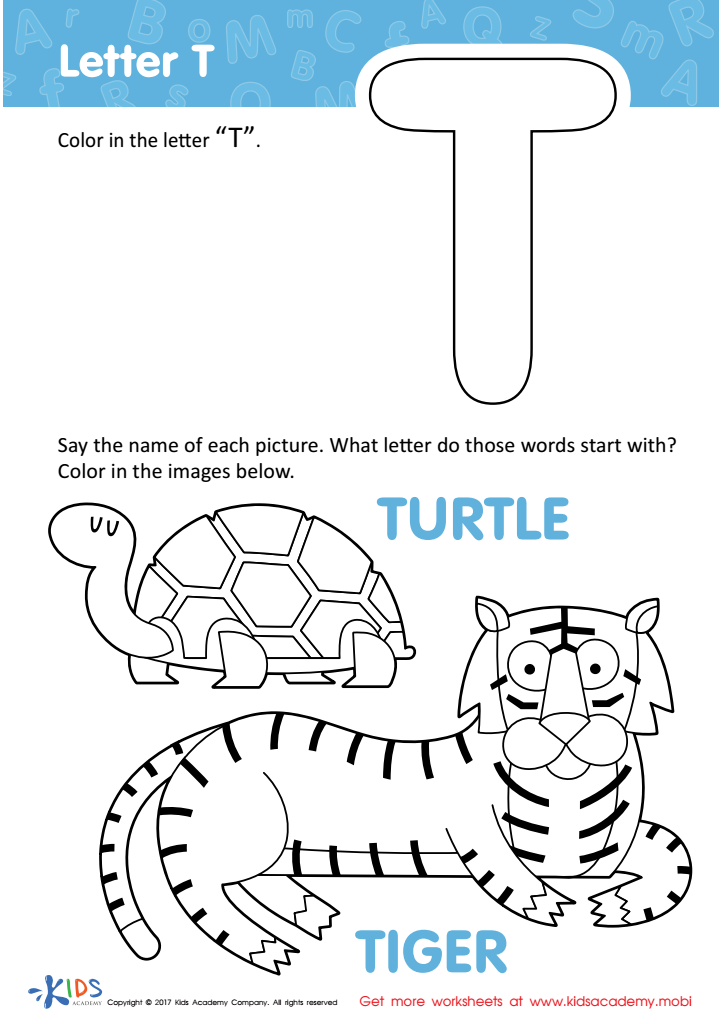

Letter T Coloring Sheet
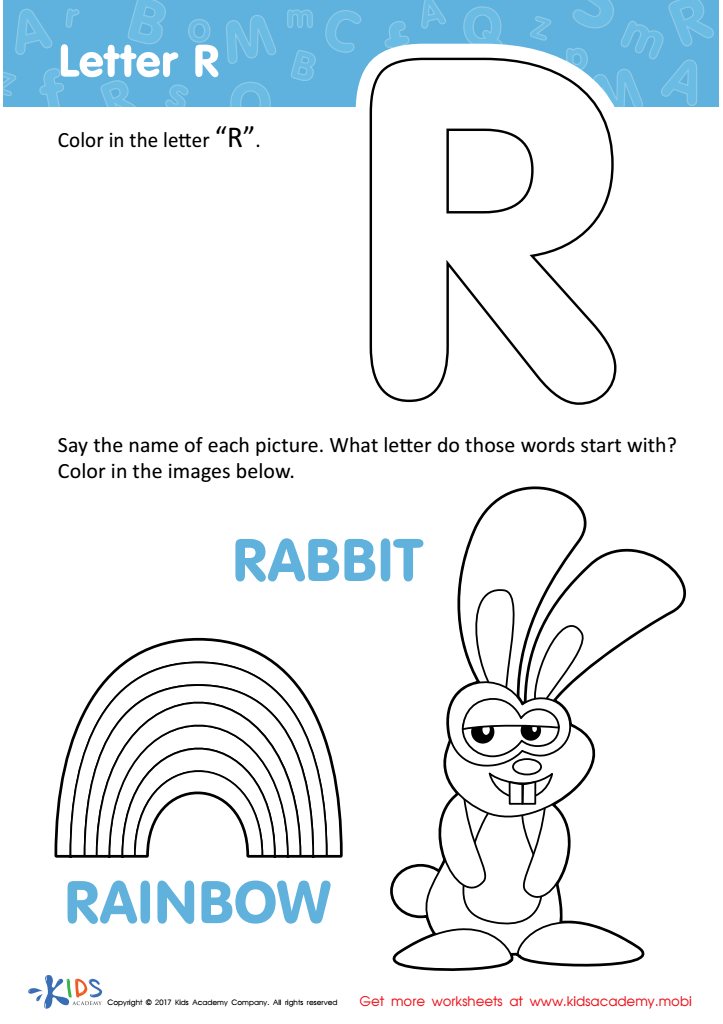

Letter R Coloring Sheet
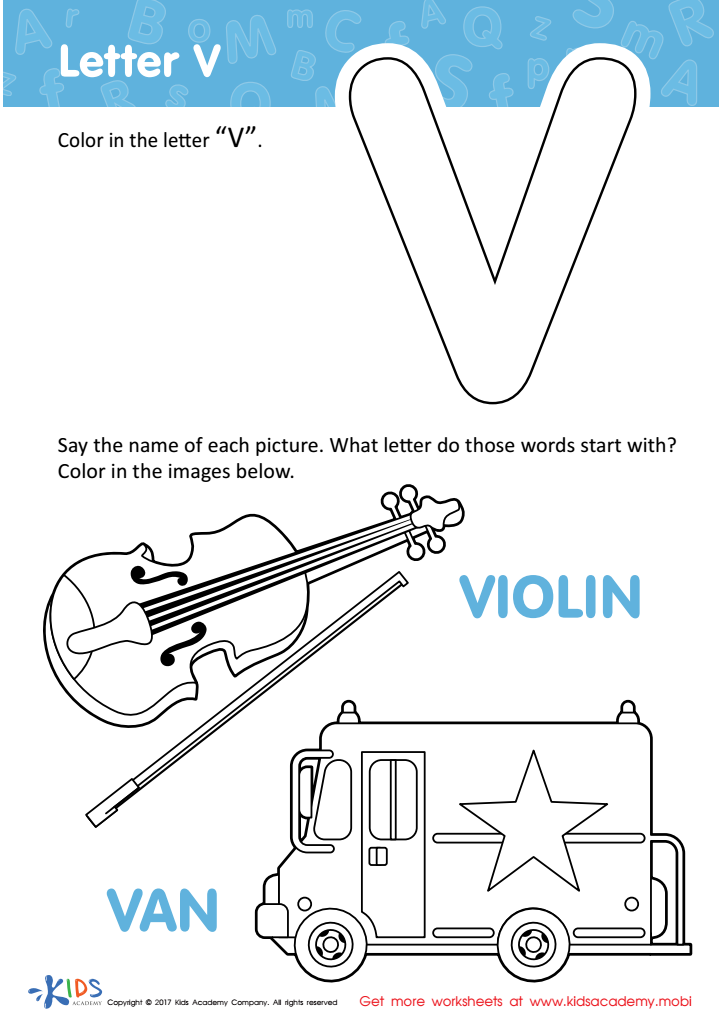

Letter V Coloring Sheet
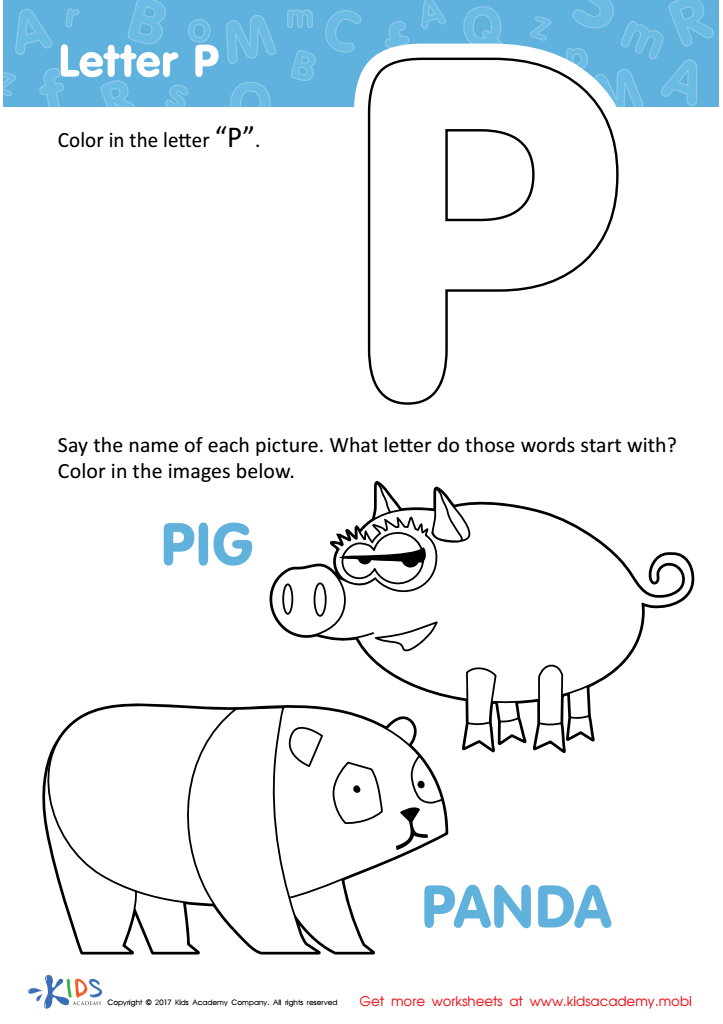

Letter P Coloring Sheet
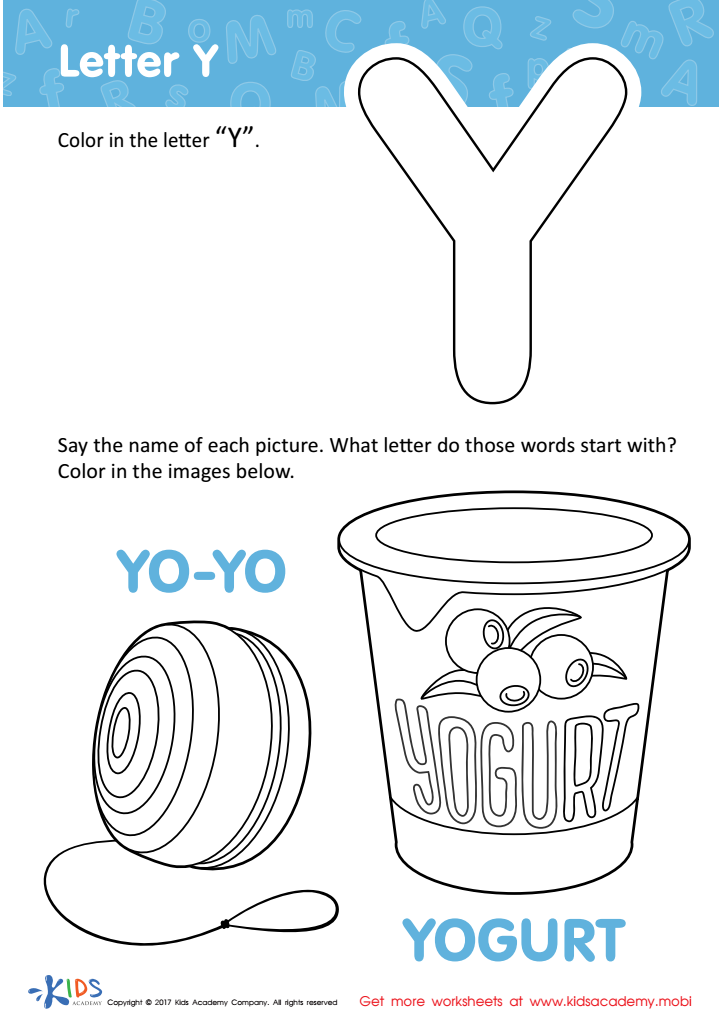

Letter Y Coloring Sheet
Alphabet recognition is a vital foundation skill for young learners, and thus, parents and teachers should prioritize it for children aged 6-8. At this developmental stage, children are rapidly building their language and literacy skills. Understanding the alphabet, including both uppercase and lowercase letters, is essential for reading and writing. When children can easily recognize letters, they can begin to link them with their associated sounds, forming a crucial step toward phonemic awareness.
Alphabet recognition also supports vocabulary development. As children identify and name letters, they can also start to read simple words, fostering early reading enthusiasm and confidence. The sense of achievement they feel when they recognize letters and can read new words cultivates a positive attitude toward learning.
Moreover, engaging activities that promote alphabet recognition, such as flashcards, drawing letters, and interactive games, help develop fine motor skills and hand-eye coordination. These activities also support cognitive development by challenging children to recall, think critically, and solve problems.
In today’s literate society, alphabet recognition is the first step towards academic success. By mastering this basic skill early on, children are better prepared for more complex literacy tasks, ultimately paving the way for future educational achievements and a lifelong love of learning.
 Assign to My Students
Assign to My Students









